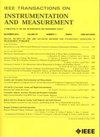小故障样本下的跨域在线诊断框架
IF 5.9
2区 工程技术
Q1 ENGINEERING, ELECTRICAL & ELECTRONIC
IEEE Transactions on Instrumentation and Measurement
Pub Date : 2025-09-04
DOI:10.1109/TIM.2025.3606021
引用次数: 0
摘要
工业应用中的跨域故障诊断是一个重大挑战,特别是当可用的故障样本数量有限时。现有的数据驱动和迁移学习(TL)方法常常存在实时诊断、跨域泛化不足以及无法适应不断变化的故障条件等问题。为了解决这些限制,本文提出了一种新的跨域在线故障诊断框架(CDODF)。该框架利用对比语言图像预训练(CLIP)模型从有限的故障数据中提取鲁棒的、域不变的特征。为了进一步实现跨域自适应而无需进行昂贵的微调,引入了轻量级的Adapter模块,该模块结合了少量学习和对目标域特征的在线自适应。此外,CDODF支持连续学习策略,该策略使用累积的目标域数据动态更新模型,确保长期适应性和诊断准确性。跨场景的实验结果,包括跨工况、跨设备诊断和新出现的故障类型,表明CDODF始终优于现有的深度学习(DL)、TL和few-shot方法。本文章由计算机程序翻译,如有差异,请以英文原文为准。
A Cross-Domain Online Diagnosis Framework Under Small Fault Sample
Cross-domain fault diagnosis in industrial applications presents a major challenge, especially when only a limited number of fault samples are available. Existing data-driven and transfer learning (TL) methods often struggle with real-time diagnosis, insufficient generalization across domains, and the inability to adapt to continuously evolving fault conditions. To address these limitations, this article proposes a novel cross-domain online fault diagnosis framework (CDODF). The framework leverages the contrastive language-image pretraining (CLIP) model to extract robust, domain-invariant features from limited fault data. To further enable cross-domain adaptation without costly fine-tuning, a lightweight Adapter module is introduced, which incorporates few-shot learning and online adaptation to target-domain features. Moreover, CDODF supports a continuous learning strategy that dynamically updates the model using accumulated target-domain data, ensuring long-term adaptability and diagnostic accuracy. Experimental results across scenarios, including cross-working conditions, cross-device diagnosis, and emerging fault types, show that CDODF consistently outperforms existing deep learning (DL), TL, and few-shot methods.
求助全文
通过发布文献求助,成功后即可免费获取论文全文。
去求助
来源期刊

IEEE Transactions on Instrumentation and Measurement
工程技术-工程:电子与电气
CiteScore
9.00
自引率
23.20%
发文量
1294
审稿时长
3.9 months
期刊介绍:
Papers are sought that address innovative solutions to the development and use of electrical and electronic instruments and equipment to measure, monitor and/or record physical phenomena for the purpose of advancing measurement science, methods, functionality and applications. The scope of these papers may encompass: (1) theory, methodology, and practice of measurement; (2) design, development and evaluation of instrumentation and measurement systems and components used in generating, acquiring, conditioning and processing signals; (3) analysis, representation, display, and preservation of the information obtained from a set of measurements; and (4) scientific and technical support to establishment and maintenance of technical standards in the field of Instrumentation and Measurement.
 求助内容:
求助内容: 应助结果提醒方式:
应助结果提醒方式:


